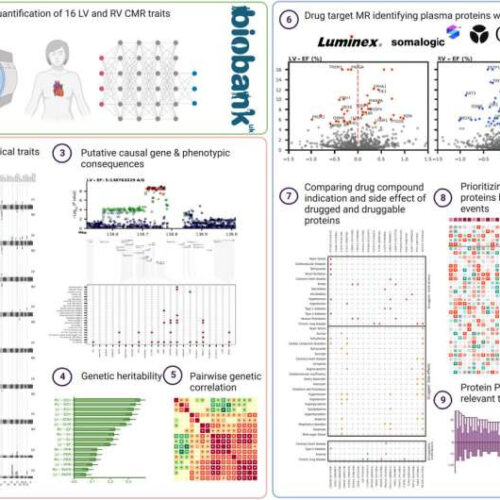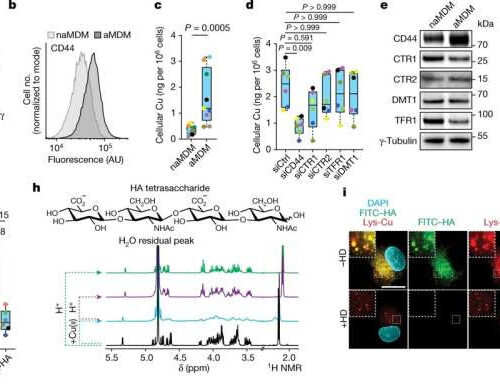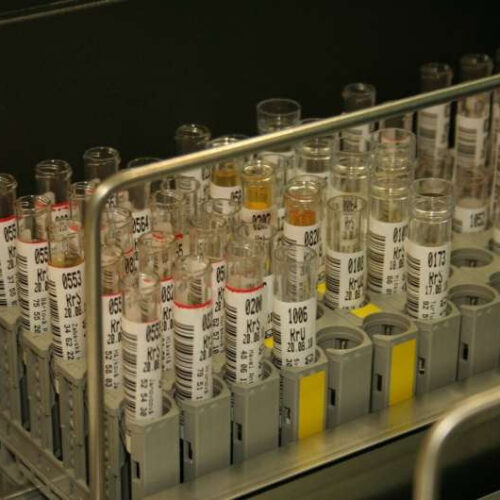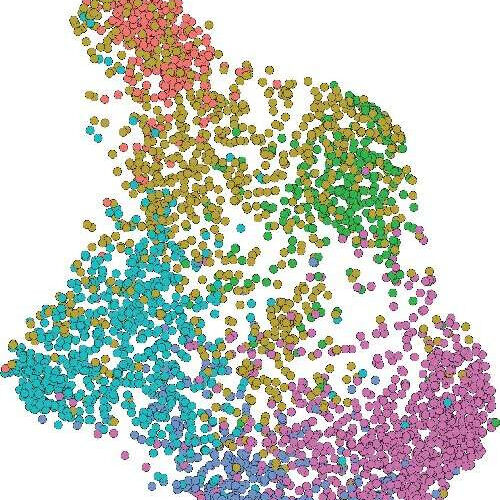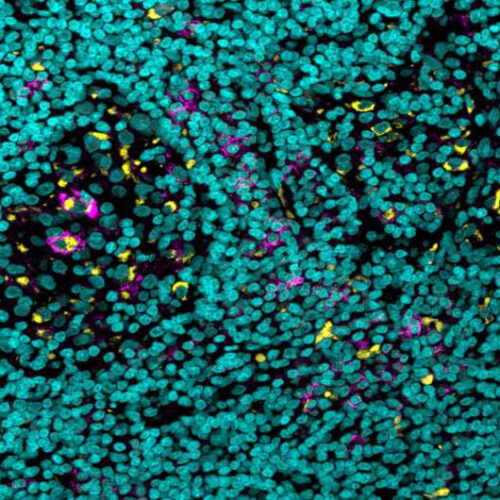Cancer research has made big strides over the past few decades, leading to better prevention efforts, improved treatment options, and longer survival. Despite the significant progress, there is still a lot of work to do. In the latest issue of Cell, cancer specialists from across the globe provided their take on the big questions worth exploring in cancer research...
Tag: <span>Cancer</span>
Cause of heart damage from cancer drugs identified
by University College London Study infographic leveraging neural network analysis of biventricular CMR data and GWAS to prioritize plasma proteins with an effect on cardiac outcomes. CMR, cardiac magnetic resonance imaging (MRI); GWAS, genome-wide association study. Credit: Science Advances (2023). DOI: 10.1126/sciadv.add4984 Modern drugs can be very effective at treating cancer and have led to greatly improved survival...
Inflammation and cancer: Identifying the role of copper paves the way for new therapeutic applications
by CNRS CD44 mediates copper uptake. a, Experimental setup used to generate inflammatory monocyte-derived macrophages (MDMs). b, Flow cytometry of CD44 in MDMs. Data are representative of n = 13 donors. AU, arbitrary units. c, ICP-MS of cellular copper in MDMs (n = 9 donors). d, ICP-MS of cellular copper in aMDMs with short interfering RNA (siRNA) knockdown of indicated receptors and transporters (n = 6 donors)....
On the horizon: Painless way to check for bladder cancer
by Laurie Fickman, University of Houston Credit: CC0 Public Domain A University of Houston biomedical engineer and his team are reporting the discovery of new biomarkers for early detection of bladder cancer (BC), among the most common cancers diagnosed in men in the U.S. According to the American Cancer Society, more than 62,000 cases have been...
How cancer evades immune system detection and spreads
by SingHealth A map of CD8+ T cells, in different states, from primary and metastatic tumors by single cell RNA sequencing. Credit: Quah et al., Nature Communications A research team led by the National Cancer Centre Singapore (NCCS) with members from Duke-NUS Medical School, KK Women and Children’s Hospital, A*STAR’s Singapore Immunology Network (SIgN), the University of...
Can Particles in Dairy and Beef Cause Cancer and MS?
Angela Speth, MD March 13, 2023 In our Western diet, dairy and beef are ubiquitous: Milk goes with coffee, melted cheese with pizza, and chili with rice. But what if dairy products and beef contained a new kind of pathogen that could infect you as a child and trigger cancer or multiple sclerosis (MS) 40-70 years later?...
Simultaneous diagnosis and treatment of cancer now possible
by Pohang University of Science and Technology Graphical abstract. Credit: Theranostics (2023). DOI: 10.7150/thno.79282 Cancer is no longer incurable. Nevertheless, according to data released by Statistics Korea last year, cancer remained the primary cause of mortality in Korea in 2021. This highlights the ongoing struggle against cancer, which demands effective prevention measures as well as timely diagnosis...
Antibody fragment-nanoparticle therapeutic eradicates cancer
CORNELL UNIVERSITY ITHACA, N.Y. — A novel cancer therapeutic, combining antibody fragments with molecularly engineered nanoparticles, permanently eradicated gastric cancer in treated mice, a multi-institutional team of researchers found. The results of the “hit and run” drug delivery system, published in the March issue of Advanced Therapeutics, were the culmination of more than five years of collaboration between Cornell,...
Microcalcification ‘fingerprints’ can yield info about cancer
An interdisciplinary collaboration 10 years in the making used a materials science approach to “fingerprint” the calcium mineral deposits known as microcalcifications that reveal pathological clues to the progression of breast cancer and potentially other diseases. The group’s paper, “Biomineralogical Signatures of Breast Microcalcifications,” published in Science Advances. The lead author is postdoctoral researcher Jennie Kunitake, Ph.D....
Molecular change to immunotherapy antibody could accelerate immune response to cancer
by Weizmann Institute of Science Tissue sample of a particularly aggressive skin cancer reveals immune cells (yellow) that express on their surfaces a “brake pedal” receptor called FcgIIb (purple); cell nuclei are in blue. Credit: Science Immunology (2023). DOI: 10.1126/sciimmunol.add8005 On the road, putting a foot on the gas or brake pedal controls the car’s speed. This...

